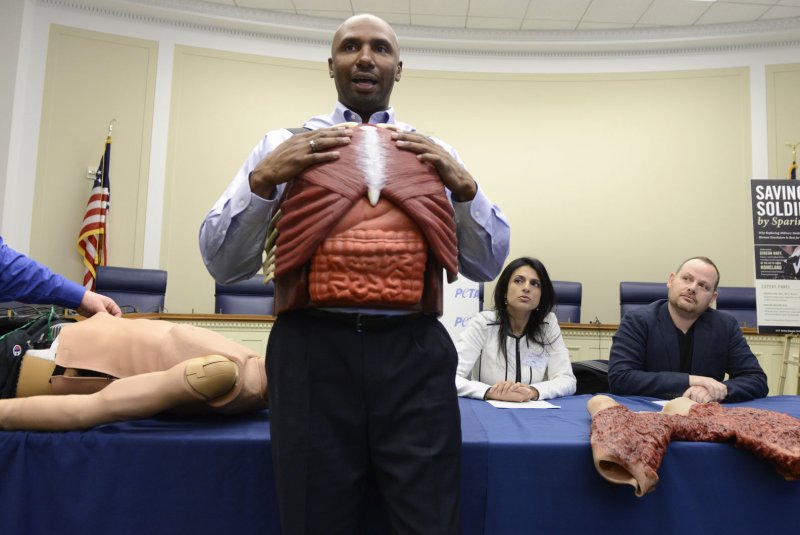1 of 3 | Cleveland Wiltz, a technician from Canadian Aviation Engineering (CAE) Health Care, demonstrates an upper body portion a human simulator for a demonstration on using simulators instead of animals in teaching battlefield trauma to medical personnel, during a briefing, February 10, 2016, on Capitol Hill, in Washington, DC. A bill is before Congress proposing cost savings by using the technology and sparing animals, which is supported by People for the Ethical Treatment of Animals (PETA). Photo by Mike Theiler/UPI |
License Photo
WASHINGTON, Feb. 10 (UPI) -- Former military doctors and veterans called for an end of the practice of using animals for military medical training during a briefing on Capital Hill.
The practice, sometimes referred to as live tissue trauma training, uses injured animals to train military medics to respond to emergency situations on the battlefield, such as injuries caused by improvised explosive devices or in combat.
During the presentation on Capitol Hill, former military doctors suggested the use of human simulators would not only be a more ethical solution, but also provide more accurate and cost-effective training for military medical personnel.
"First, the vast differences in the anatomy and physiology of humans and other animals make animals poor surrogates for humans," Rep. Ted W. Lieu, D-Calif., and Israeli Defense Force combat veteran Gideon Raff wrote in an editorial published by USA Today on Tuesday. "Second, replacing live animals with artificial simulators also benefits the taxpayers."
The event featured a demonstration by a technician from the Canadian Aviation Engineering Health Care, who used a human simulator to demonstrate various medical scenarios.
The U.S. Department of Defense announced it was scaling back the use of live animals for medical training in November 2014, and plans to use more simulators in place of animals.















